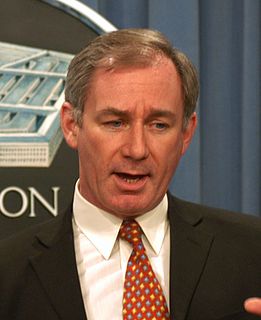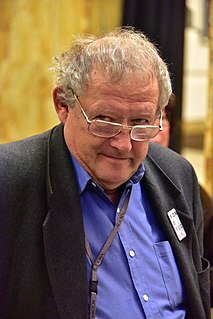A Quote by John Dingell
I can support going in after Saddam Hussein, but I want to make sure I don't go alone.
Related Quotes
Even before September 11, there was a debate in the administration about whether or not military force should be used to oust Saddam Hussein. You're not going to find one person in the top echelons of the foreign policy and national security establishment in the U.S. government who's going to say that Saddam Hussein should not be out of power.
We must recognize that there is no indication that Saddam Hussein has any intention of relenting. So we have an obligation of enormous consequence, an obligation to guarantee that Saddam Hussein cannot ignore the United Nations. He cannot be permitted to go unobserved and unimpeded toward his horrific objective of amassing a stockpile of weapons of mass destruction.
The British government believes we must be resolved to disarming Saddam Hussein. It must be done before the terror weapons he possesses can be used by Saddam himself or by others with his blessing. We must steel ourselves to the consequences of that resolve and send a clear message to Saddam Hussein: You cannot win. You can only comply and disarm or be defeated. The choice is entirely yours.
































